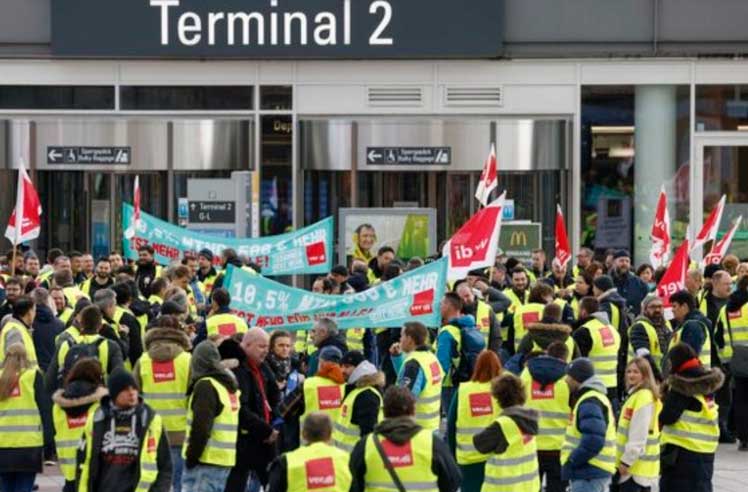Railway traffic in the country is practically paralyzed; more than 80 percent of long-distance trains were canceled, local transport operates intermittently, and freight train drivers stopped working.
Unions in the sector are demanding that employers increase wages and additional compensation in the face of rising inflation. In addition, the unions want to achieve a reduction in the working day from 38 to 35 hours per week without reducing salaries.
However, the railway management, which is also facing a crisis, is so far only prepared to partially meet these demands by temporarily increasing salaries by 11 percent.
According to the German unions, if their demands are not met they will lead the workers to new protests.
Authorities are observing the conflict between unions and employers from the sidelines and asking both parties to find a way to return to the negotiating table, while proposing that passengers refuse to travel by train, which according to local analysts will not be easy, because protests by farmers and heavy vehicle drivers in Germany are still ongoing, and the roads throughout Germany are blocked by tractors.
Local media emphasizes that the wave of popular discontent sweeping through Germany has a common cause related to the leaders’ inability to get the country out of a prolonged crisis.
According to public opinion polls, almost two-thirds of Germans are in favor of Federal Chancellor Olaf Scholz leaving office and 70 percent have a negative view of the work of the entire government, given that the result of the activities of Scholz’s Cabinet in 2023 was a recession in the German economy.
Scholz’s popularity also wasn’t helped by the fact that, during the protests, German Chancellor Annalena Baerbock stated her intention to discuss with the leaders of the European Union the increase in the supply of weapons to Ukraine.
jrr/jf/amp










